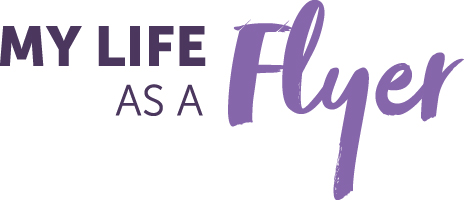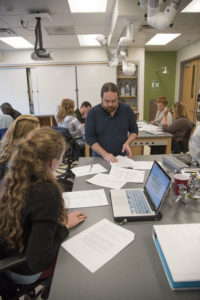Unfortunate stereotypes that have persisted over the years have made pursuing a degree in the humanities seem, at least at first, like a choice that carries a lot of negative assumptions and connotations. Majoring in English or history begs the question from friends and family, “what are you going do with that?” If you’re anything like me, you’ll often defaut to, “teach” or the more popular, “I don’t know,” but this outlook fails to consider so many other avenues and options in the humanities that are often overlooked! So if you’re wondering why you’ll have to take PE-Q courses, study the history of postcolonial English literature, or read an analysis of The Apology by Plato, continue to wonder, but do so with the confidence that you’ll be learning something worthwhile!
You can read and write.
As a tutor in the writing center here at Nazareth, I interact with nearly every single field of study the school has to offer. I have looked over as many literary analysis papers as I have biology research assignments. One thing that I know for sure about those in the sciences is that they have a knowledge and an understanding of the world that I will never be able identify with, and that’s okay. I have read over papers that are so brilliantly complex and in depth that I could never hope to begin to truly grasp the content. While these people are all brilliant, some, but not all, have trouble finding confidence in their ability to write. Within these fields, there is a growing demand for people who can take in all of that information, while still being able to present it in writing that is clear, easy to understand, and geared towards the audience who wishes to understand it. You can find great success in working for these fields as a writer.
You aren’t a robot.
We live in a technological renaissance. This, while exciting, also comes with a loss of jobs that people were once able to carry. Cashiers become replaced with scanners, factory workers replaced with automated machines, and so on. The inevitable shift from manpower to automation is changing the landscape of the job market, and faster than you may think. One thing that robots cannot reproduce? Human communication and the ability to connect and speak with people at an intimate and interpersonal level. Even as you or some of your friends work on a math, science, or technology based degree, you may find some true value in minoring in something like English or communications. The ability to interpret information and analyse it for a human audience cannot be built into a machine and is arguably necessary in almost every field. Many job opening in the future will be for the things that computers and robots cannot do, and those who have a knowledge of the humanities are going to be able to fill that gap. At Naz, we have an amazing career center, The Center for Life’s Work, that can help you market these skills and find internships utilizing them in a wide variety of fields. Our professors are also a great resource for finding opportunities and getting connected with the right people.
The Alt AC
Many people are unaware of the other options available to humanities majors and minors other than teaching that are still within the realm of academics. This has recently come to be known as the “Alt AC”, or “Alternative Academics”. These are careers that still engage some form of academics that isn’t just teaching. Jobs like museum and library curation or archiving, museum studies, bookkeeping, journalism, editing and publishing, library sciences, and many many others are all jobs that engage an academic quality that so many people love. You can find some examples of real Alt AC job offerings here. Also, check out Naz alums Anthony Stirpe (English, ’98) and Susan Shaheen (English and Political Science, ’88), who both used their humanities majors to find Alt AC jobs that they are extremely passionate about.
So, if you’re considering a sociology major, or English major, or what have you, don’t fear. There are so many jobs available out there for you, and the future only looks brighter. If you’re considering a math or science discipline, that’s great and extremely necessary, but maybe consider a minor in a humanity to give yourself a leg up. Either way, don’t just pick a major because you think it’s logical. Never be afraid to do what you love, because that’s really the only logical reason to do anything at all.




